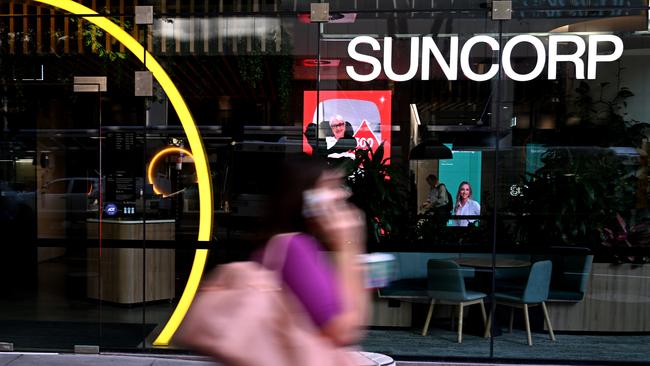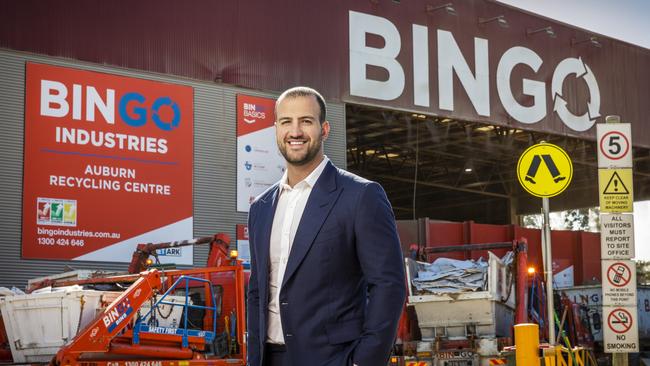
The tribunal’s full judgment won’t be released until next month which is another cause for caution in assessing the decision, but the bottom line is, contrary to the ACCC’s judgment, the tribunal said it was satisfied the ANZ takeover wouldn’t substantially lessen competition.
That being the case, the eminent members of the tribunal, including former ACCC commissioner Dr Jill Walker, thought Suncorp’s significance in the banking sector was small – so why is ANZ’s Shayne Elliott paying so much money for it?
The sharemarket seemed to share the puzzlement, which explains why NAB and Westpac had positive weeks on the bourse and ANZ was flat to negative, falling on the day of the decision.
The reality is most mergers fail to deliver better shareholder returns, and as this one is earnings-per-share dilutive it starts on the backfoot.
A 2 per cent jump in mortgage market share might provide some momentum but it’s hard to escape the conclusion that Elliott would do better spending the billions on improving his own systems and delivery to entice more brokers to push more home loans in his direction.
Actual competition may improve returns more than an overpriced acquisition.
CBA is the only big-four bank which initiates more home loans from its own channel than through brokers, which makes it both more profitable and in control of the customer relationship.
NAB is still the biggest business banker with 22 per cent of loans against 18 per cent at CBA, ANZ is well back at 14 per cent and, with new NAB boss Andy Irvine coming from this part of the world, you would expect his focus would be on retaining this lead.
He needs to, because fact is over three years NAB has lost 0.73 per cent share while CBA has gained 1.5 per cent and CBA has now the biggest share of deposits.
All of which tells you that having been dragged through the merger authorisation gauntlet by the ACCC, ANZ may have finally won the argument two years later, but just what has Elliott really won?
Cartel crackdown reaping rewards
The ACCC took a big step forward in its campaign against cartel behaviour with a combined $33.6m in fines awarded on Friday against waste collection groups Bingo ($30m) and Aussie Skips ($3.6m).
Both companies’ chief executives were convicted of criminal offences and commuted to community service work, banned from managing a company for five years and received a combined total of $175,000 in fines.
The corporate fines were significantly less than the maximum possible but rank as the fourth highest in history after BlueScope ($57.5m for attempted cartel behaviour in 2023) Japanese car component company Yazaki ($46m in 2018) and shipping company K-line ($34.5m in 2019).

Both chiefs – Bingo’s Daniel Tartak and Aussie’s Emmanuel Roussakis – pleaded guilty to the offences which Federal Court judge Michael Wigney described as serious criminal offences that imposed significant costs on Australian consumers and businesses.
ACCC chief Gina Cass-Gottlieb welcomed the ruling, saying the criminal case was justified on the basis of the fines awarded and the deterrent factor of the criminal convictions.
In handing down the sentences, Justice Wigney noted that the two companies agreed to limit price increases applied to agreements for a period of three months in 2019.
Macquarie acquired Bingo for $2.3bn in 2021, after the offences occurred.
Separately, Brickworks’ Lindsay Partridge is breaking new ground by challenging an ACCC merger decision over three years after it was approved when BGC acquired the former Boral Midland bricks business in 2020.
BGC is now the only player in the west because Partridge closed his operations last year, claiming BGC priced him out of the game.
On the east coast, Partridge has 60 per cent-plus market share. CSR (now under attack from French giant St Gobain) has 40 per cent.
Brickworks is taking Federal Court action against BGC, alleging breaches of section 50 and 46, claiming its Midland acquisition breached the lessening-of-competition rules and was an abuse of market power.
The case seeking damages and divestiture of the Midland assets will be heard by Federal Court judge John Halley in March next year. Clayton Utz veteran Michael Corrigan will represent Brickworks and Quay Law Partner’s Dave Poddar for BGC.
Green Collar buys into ELS
Green Collar has acquired a minority stake in emissions advisory firm Energy Link Services (ELS) to widen its services the length of the chain and cement a longstanding relationship.
ELS founder Phil Link established the company six years ago aimed at advising clients on their total emissions and how to manage them from a farm base through to processors and other industrial businesses.
ESL starts measuring scope one, two and three emissions, and Green Collar, the biggest project developer, offers opportunities to develop carbon and minimise emissions.
The combination comes as, driven by investor demand, more companies are demanding from both suppliers and customers their emission profiles.
The profitability of pet care
The $5.3bn vet services market is riding the wave of the “humanisation” of pets thanks to people wanting better attention and services for their animals.
At the premium end of the market is the Small Animal Specialist Hospital (SASH) founded 17 years ago at North Ryde in Sydney by Justin Wimpole, Andrew Marchevsky, Mark Bilson and Stephen Fearnside with a staff of 15.
It now has 750 staff, including 200 vets, at its five hospitals – many with specialist qualifications backed by top-line equipment including CT scanners, therapeutic lasers, MRIs for animals, cancer-treating medical linear accelerators, underwater treadmills and 24/7 services.
SASH is 30 per cent owned by the Schwartz family-backed Armitage Associates, which invests in companies for the long term, providing both capital and advice to the founders to help them run the business.
In SASH’s case the Armitage-backed chair is Jamie Tomlinson, the former Lion financial chief, who since stepping into the chair has coincidently seen a handful of former Lion colleagues join the team in executive roles from finance to HR.
Expansion often starts with backing an existing team of specialists then helping them build out the practice, in big box style centres and including offering vets residences in five-year programs while they study for extra qualifications.
SASH’s Wimpole sees vet salaries as destined to increase as service efficiency improves and clients demands greater levels of care.
He now employs seven PhDs and several doubled-branded specialists as well as a professor in surgery in teams which are remunerated as a team.
Clients are generally referred by the local vet but some people come after hours on their own.
The business has expanded to Adelaide, the NSW central coast and three Sydney hospitals, with more local expansion planned.
Covid saw many UK and US vets return home and combined with increased demand for more skills in Australia comes as more people add pets to their households and moved them from outside kennels to prime locations in the house as working from home cemented the relationships.
Bunnings and Woolworths et al are expanding pet products on the mass market while SASH chases the premium end.
Wimpole said vets, who have an extraordinary breadth of professional talent, are sometimes lacking in leadership skills, which is where Tomlinson and Armitage comes to the party.




Put the hysterical anti-ACCC press reaction to one side and ask yourself this: if the Competition Tribunal thought Suncorp bank was an insignificant piece of the banking pie why is ANZ paying $4.9bn for a hill of beans?